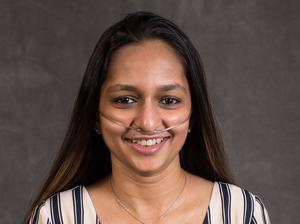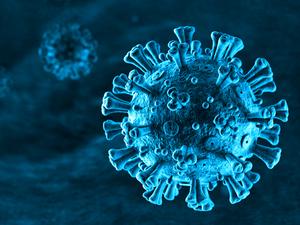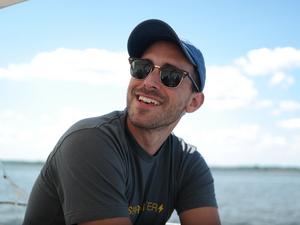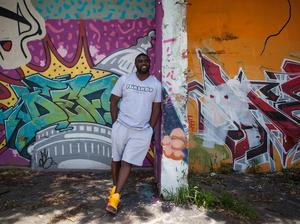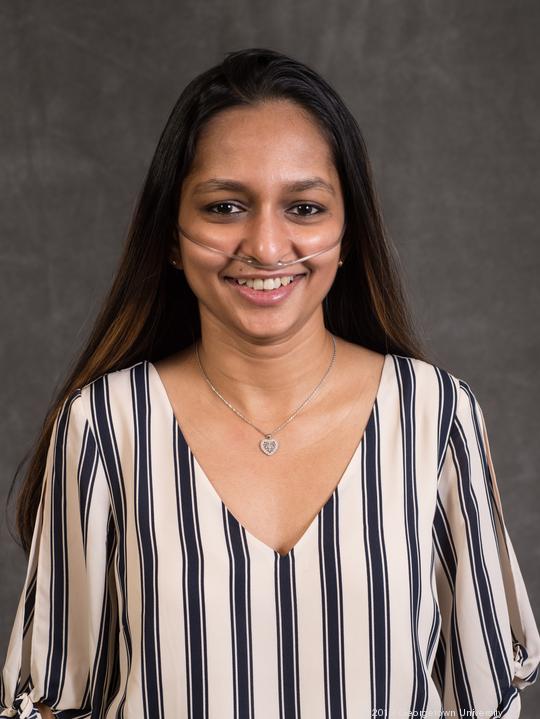
Shavini Fernando was like many entrepreneurs whose startups were endangered by the coronavirus. But she was unique in how the pandemic endangered her own health.
As someone suffering from severe pulmonary hypertension, Fernando herself is a user of the oxygen monitors developed and sold by her Arlington business, OxiWear. But more recently, she's seen rising demand for her products, beyond pulmonary hypertension patients, that have allowed her to accelerate her path to market — and seek more funding to do it.
She is homing in on hospitals and doctors as customers, to help them more effectively address Covid-19 as quietly tanking oxygen levels scar patients’ lungs before symptoms surface.
OxiWear’s device helps prevent silent hypoxia, or falling oxygen levels, which cardiovascular disease and Covid-19 both cause. In the case of Covid, the goal is to help health care providers identify asymptomatic patients earlier, to test and treat them before their conditions worsen. It also allows doctors to safely send patients home and continue monitoring their vitals remotely, Fernando said.
After prematurely closing a $500,000 round — her first formal raise — that she couldn’t complete because “people had to pull out” amid coronavirus, she said, she's back to raising money. She hopes to build on $175,000 from that raise because she'll need more capital to get the oxygen monitor to market.
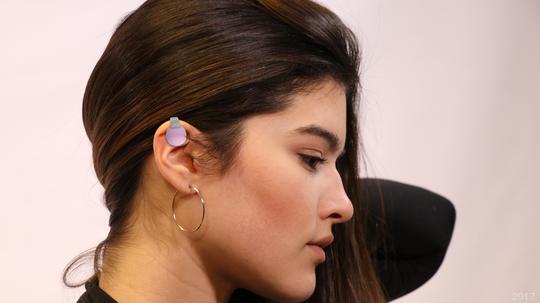
That’s because the company is seeking the Food and Drug Administration’s approval for an emergency use authorization as soon as November. Taking that route would allow OxiWear to sell its device to hospitals faster — possibly by January or February — but it also requires it to manufacture roughly 10,000 initial units in advance of sales.
Fernando launched a $50,000 crowdfunding campaign on Indiegogo that has raised more than $10,000 through the presale of devices — the young startup’s first revenue. That approach, though incremental, "got us a lot of traction,” she said. She has started hearing from potential investors and partners looking to get involved.
The FDA emergency authorization process will cost about $750,000, she said. So she’s now pitching investors and applying for grants, because the approval would turn things around, giving the business the go-ahead to sell its oxygen monitor to medical providers — sales that should turn a profit, Fernando said.
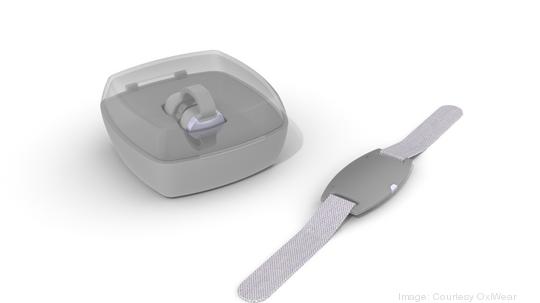
She’s also banking on business from the fitness space, where she’s already selling the product because a regulatory approval isn’t required. In that arena, the device sells for $300, with a 40% discount from the crowdfunding campaign. OxiWear is also gifting the wearable ear clip to people who need it but can’t afford it through a program called OxiCare, Fernando said, “because my whole mission is helping people.”
Since last fall, Fernando has built an eight-person team, which includes two full-time engineers she hired through connections while in the Halcyon incubator in Georgetown for social entrepreneurs. She has pending utility patents for her device, and trademarks in the U.S., Japan, Korea and China. She has built an advisory board that includes Monumental Sports & Entertainment founder and CEO Ted Leonsis, who’s helped with her term sheet, as well as EverFi alum Michael Ledecky, who is U.S. Olympic swimmer Katie Ledecky’s brother and who connected Fernando with Ledecky's coaches for consultation on how the device can help with training elite athletes.
Beyond coronavirus, OxiWear is looking to get a premarket submission to the FDA to market its product as a medical device, potentially by the fall of 2021, Fernando said. She also sees applications in the children’s space, because kids with chronic diseases often don’t show symptoms; her company made the top 16 of a recent pediatric medical device competition hosted by Children’s National Hospital.
